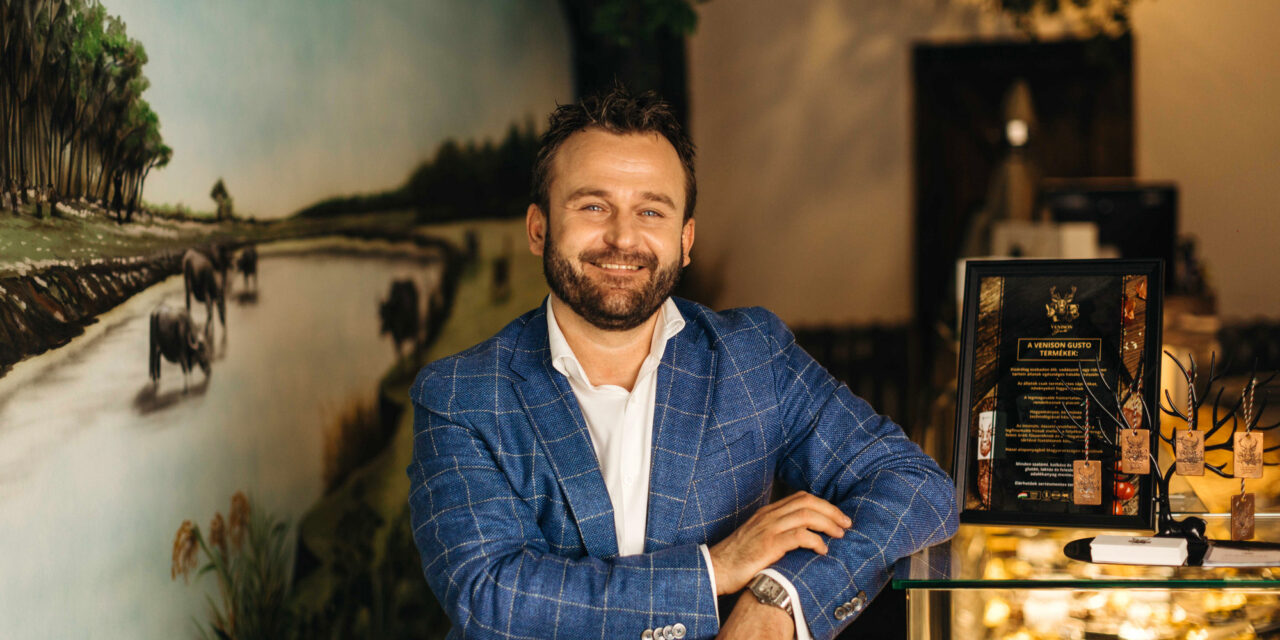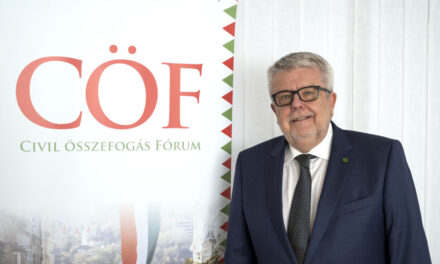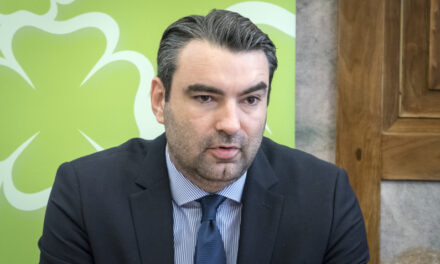He worked on three continents, managed bars and restaurants, served on luxury yachts. Gábor Ivánácz went everywhere in the world, trained himself, while observing trends and brands. He worked with the highest quality foods, and never understood why there was no Hungarian among them. Upon returning home, he decided to create a world-class Hungarian brand.
Gábor Ivánácz grew up in Baranya county, in a farmer's family, his father had sheep, so he adopted the love and knowledge of animals at an early age. He lost his mother at a young age, moved away from home at the age of 16, and got a job in hospitality. This will be of great importance later! He worked at the Cafeine and Replay cafes on the shores of Lake Balaton and in Pécs, only to set out on the world at the age of 18 without qualifications or language skills.
He went to London, where he was hired as a sauna and pool cleaner in the recreation center of the Chelsea football team. But even in this position, the bar vibrated for him, because he did not speak the language. One day, however, luck smiled on him: the club organized an event where all employees had to help serve. The management noticed how at home Gábor moved on the field, so they enrolled him in an intensive English course and soon after he was working in the club's bar.
He worked at Chelsea's fitness club for two and a half years, and on match days managed one of the stadium's bars. He used his experience in the latter field at his next job, at the Massive pub chain, where he became deputy store manager in one of the "gastro pubs". In the meantime, he got acquainted with wines through the Malux Hungarian Food & Wine company, which was founded by László Lánczi "Lucien" who emigrated to London in the fifties.
Plots, bars, restaurants
"A friend of mine and I traveled a lot and we decided that our next destination would be Moscow. When the departure time was approaching, my friend told me that the Russian trip would not be possible because he was moving to the island of St Maarten. He was a little surprised, but I wasn't sad, I told him: if you move out, I'll follow you for a month in the spring," recalls Gábor Ivánácz.
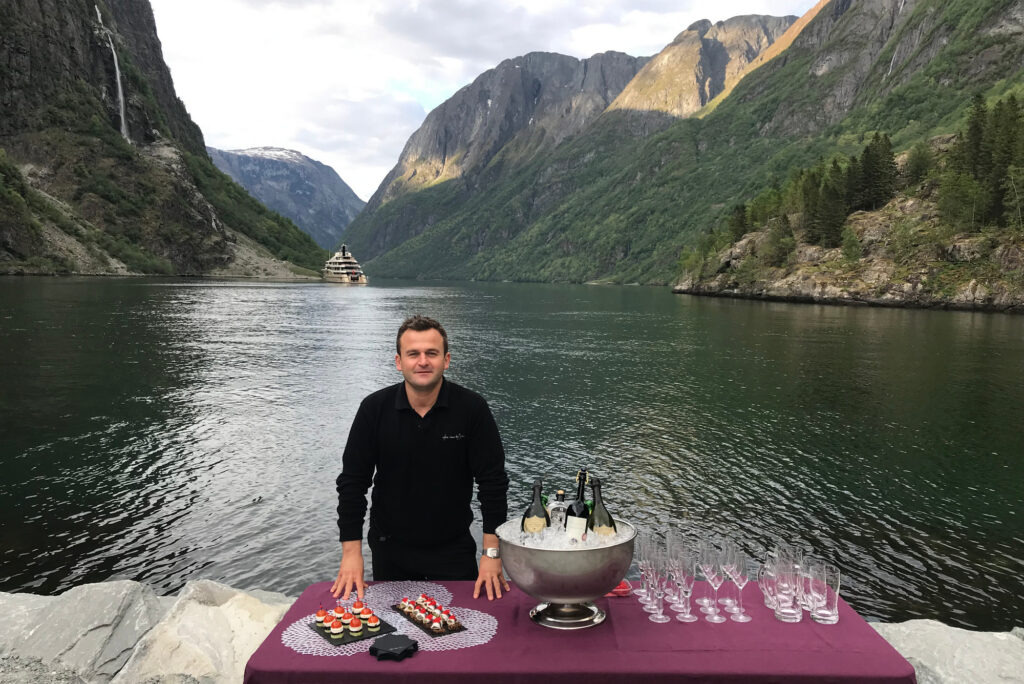
He did so. The world of the Netherlands Antilles appealed to Gábor Ivánácz, he quickly fell in love with the island located 300 kilometers from Puerto Rico. After returning home to often rainy London, she found herself missing the Caribbean vibe. One day, he was listening to one of Rapülű's songs on the internet radio, one of the lines of the song goes like this: "Hey, never be afraid that the wind will blow you where it's good!" Not understanding what he was doing in London, he quit the same day, bought a plane ticket and moved to St Maarten a few weeks later.
Four and a half years of waves came, and not only in the ocean: he suffered a serious car accident and had to deal with several other difficulties. Still, he says, it was perhaps the most beautiful period of his life. He ran a private club called the Opium room, which welcomed the wealthiest, i.e. the cream of St Maarten, on top of the night club operating next to the Casino Royale.
He and his French lover at the time decided to change jobs, so they ended up in Cape Town, South Africa. Here, Gábor Ivánácz enrolled in the Cape Wine Academy, where he got to know winemaking even more intimately while working in the Paranga restaurant in Camps Bay. After his time here, he returned to London, where he worked at a restaurant called La Pont de la Tour overlooking Tower Bridge, where politicians and well-known people often visited.
His next stop was also in the British capital, and he laughs today that Launceston Place didn't get a Michelin star because of him. "The D&D company, which operates the restaurant, has several other restaurants, and I worked as a manager in one of them. One day, the manager of Launceston Place could no longer hold his position due to family problems, and at ten o'clock in the morning they told me that I had to replace him. There was one less waiter on the field, I had to stand in, but I knew nothing about the restaurant and the food. This was a big problem when it later turned out that a Michelin inspector was sitting in my sector. I tried to save the situation and rambled back and forth about the food," says Gábor Ivánácz. Later, the restaurant was included in the Michelin red book under Gábor's leadership.
You can't get away with investing in yourself
According to Gábor Ivánácz, in order for someone to be able to develop, he must always be ready to change, because if he does not experience the difference between individual places, how could he form an opinion about them? Therefore, he always invested a significant part of his earnings in himself. He constantly tried new and new places, new dishes, watched the service, graduated from schools. But let's not rush ahead! Life in London is expensive, so Gábor Ivánácz thought it was time for a change and moved to France on the Cote d'Azur.
He first worked for an Arab family on the yacht Lady Mona K. Because of the owner's mentality, few people stay on board in the long term, but Gábor went through the summer season with his head down, which was also noticed by the employment agency. "Bulletproof" and from then on he was entrusted with better and better tasks. First he became steward, then second steward, later chief steward, then butler. He also furthered his education in France, where he took the chef's exam.
The delivery and service on these ships takes place at an almost unimaginably high level here, just think that the annual maintenance fee of a yacht reaches ten percent of the purchase price of the ship. Of course, there can be big differences between the size and equipment of the ships, but even a sixty-meter specimen costs 30 million euros, while larger cruisers can reach the price of 150-200 million euros.
Gábor Ivánácz worked for a Russian sugar manufacturer on a ship called M/Y St. David. A strange way was put on the ship because it was important to the owners that the employees did not understand Russian... They drank at least 100,000 euros worth of Bordeaux wine every week. "I met the most expensive wines, caviar, and food, and I wondered: how could it be that there wasn't a single Hungarian among them?" - recalled Gábor Ivánácz's dilemma at the time.
After that, Gábor Ivánácz was put on the ship M/Y Here Comes The Sun, which was considered the most expensive charter ship in the world when it was launched. The owner is the Georgian Alexander Dzhaparidze, who liked his Hungarian subordinate, and after a while they were able to agree that when there are no guests, Gábor will manage the staff from Hungary. He ordered wine and food from home, sometimes for hundreds of thousands of euros. He flew out to Monaco a few days before the charter, and then I traveled home again a few days after the mooring. "In the winter, I flew weekly to Mexico, Cuba, and the Cayman Islands. One week cost the passengers 1,400,000 euros for the 89-meter-long ship, plus food and port fees, so the total amount of the bill could reach two million euros, which was distributed among the 12 guests," he recalls .
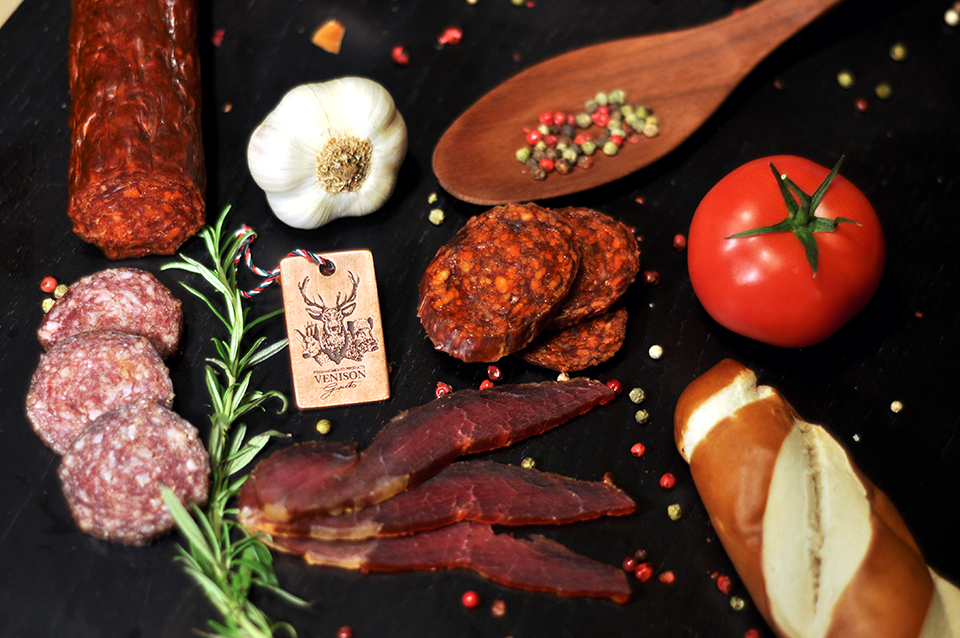
Venison_Gusto
Upon returning home, he was confronted with the fact that very few Hungarian products meet (or fail to meet) the highest standards, perhaps only Tokaj wines or foie gras, which represent a very high standard. Of course, the production and consumption of high quality is also not favored by the fact that in many places, even today, the priority is to serve a large portion and cheaply in a restaurant. However, according to the principles of the French chef legend, Paul Bocuse, the best quality ingredients, prepared with the right technology, lead to a wonderful end result. You don't even need to gorge yourself on it.
The birth of a unique Hungarian brand
When he returned home, he remembered that when he worked for the Russian owners, he often saw them eating cold meats, but at that time the big idea hadn't been born, he just thought that maybe something could be done with it. On one occasion, he and his nephew managed to get ham made from deer and were just eating it, when his relative asked: would it be possible to sell a finished product made from game to the yacht audience? Why not, answered Gábor Ivánácz. This is how Venison Gusto, which makes salamis, sausages and hams, was born.
They followed the idea, founded a company, contacted various suppliers, designed the logo, and experimented with the recipes. Gábor Ivánácz visited the French Riviera from Genoa to St Tropez, holding tastings to assess needs. This was necessary because the Western taste is significantly different from the Hungarian one: they like to feel the specialness and characteristics of the meat in a product, the spice only adds to all this, it does not dominate.
"When I knew even less about salami, I asked the opinion of several people on how to season game. I received a lot of advice on how many types of spices to season the meats with. I asked the question: if a preparation is too spicy, how will the customer be able to determine the difference between each type of meat? I chose a different path. We produce nearly fifty types of products, but we only work with three spices. We use spices ground over liquid nitrogen to preserve the aroma as much as possible, so much less is needed anyway. There is always only one component difference between each product for easier comparison, these three are meat, spices or fat. To use an example: if we want to buy shoes, it is easier if we see all the products in front of a white background, as if behind one of them there is a yellow background and behind the other a green background", says Gábor Ivánácz about the issues surrounding the start of production.
He explains: visiting the world's highest quality restaurants, serving stars, working with the highest quality ingredients, and with numerous exams behind him, he was at the same time certain: he would not produce anything, but the best. He couldn't imagine compromising on quality. Good raw materials are essential for a good product. He didn't want to work with pork that had been alive for 180 days, raised on formula, he thought it would be like trying to sell rotten broccoli to a Michelin-starred restaurant. You can't build a strong castle out of sand, he says, meaning it's impossible to make a highly qualified product out of low-quality raw materials.
That's why Gáborék Ivánácz works with the meat of animals that are kept in captivity or live freely in Hungarian national parks. He believes that if the cattle do not consume feed or grain feed, their meat will be of a completely different quality. The animals grow up in six to eight years, grazing on green grass, and only the best of these animals are used: the shoulder blade, the long scarf from the hind thigh (in the case of deer, this is used to make bresaola), or the whole thighs - today they also offer 12-month-aged wild boar and 9-month-aged deer thighs.
Just meat, fat and spices
All their products have a very high meat content. “We call meat that's one hundred percent meat, we don't play tricks, even if we could legally; we do not add scraps to the products. Our focus is not on price, but on quality. We put 430 grams of filling into the salami, which decreases to 250 grams during the aging process. This means that we lose 42 percent of the mass. We could make it so that there is more water in the product and less meat, but that is not our goal, but to produce the best. In creation, we don't have to follow the mainstream, in fact, we have to dictate where the direction is," he says of his philosophy. This is compounded by the fact that if someone does not like their product, they will refund the price. But there has never been an example of this, he adds, because their products only contain meat, fat, spices and salt.
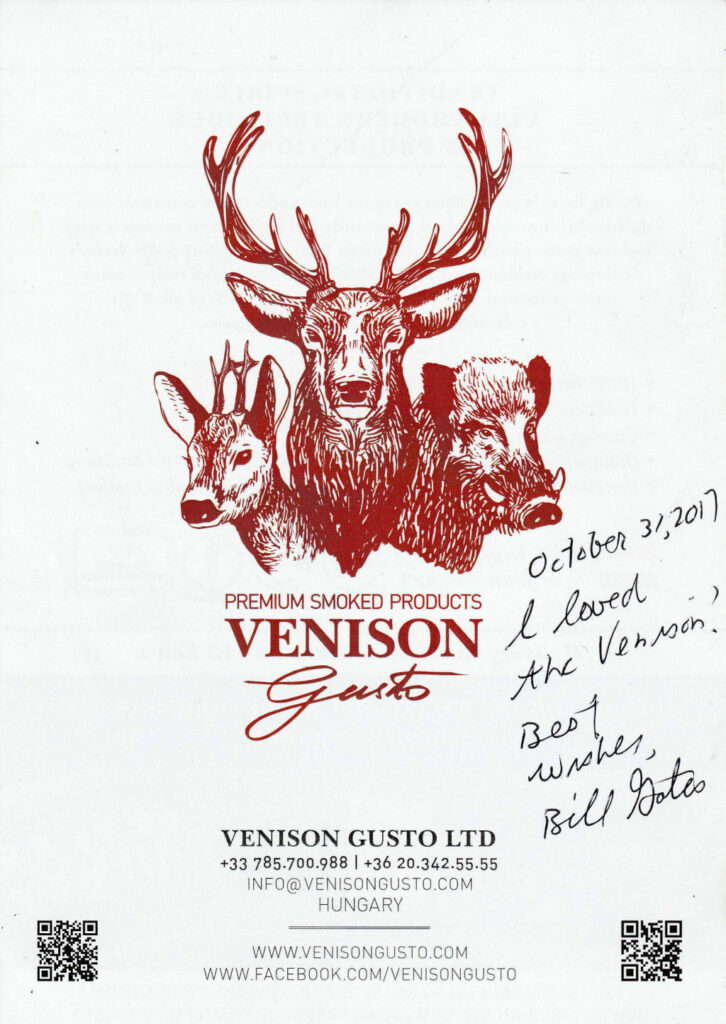
The excellent quality was also noticed abroad, Bill Gates also recommended Venison Gusto products, traders also noticed the salamis, sausages and hams made from Hungarian game, gray cattle and water buffalo. Several contracts were on the verge of being concluded when the world was struck by the coronavirus epidemic. Many of the company's relationships were affected by covid, and they are now starting to build them up again in addition to searching for Hungarian partners.
Gábor Ivánácz states that perhaps the state could support businesses better, but it does not neglect quality and proper communication, because good is appreciated by everyone, be it French, Swiss, British, Belgian or even Chinese. They do everything they can, they deliver to the best restaurants, without pretense of completeness, Venison Gusto products can be found in the offerings of Kollázs, Jamie Oliver's Italian, 21, Antré, Kiosk, Kreinbacher Birtok, Pest-Buda, ÉS Bisztró and Kempinski Hotel, as well as on the shelves of Liszt Ferenc Airport or on the shelves of the Memories of Hungary store chain.
Last year, seven of their products were nominated for the Great Taste Awards, the world's best-known food industry competition, which won a total of 13 stars (just like at Michelin, a product can receive 1, 2 or 3 stars in this competition - ed.), bringing Hungary great glory. "We consider ethics and quality important, we believe that everyone should be offered the best, and we are building the business in this spirit. We want to make the world a better place from our own strength, from Hungary," states Gábor Ivánácz.
Author: Tamás Császár

